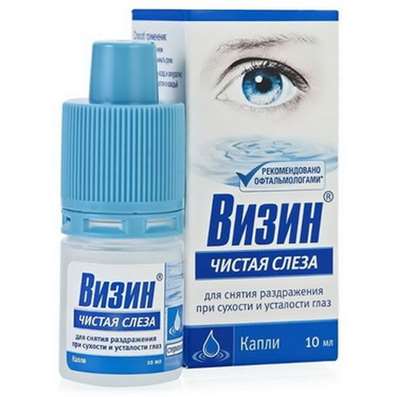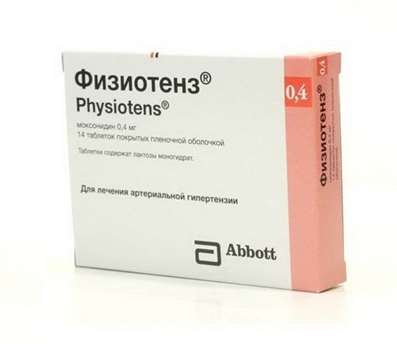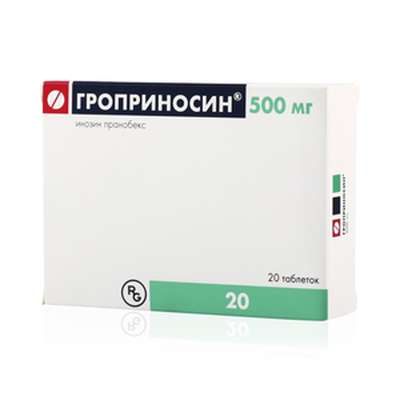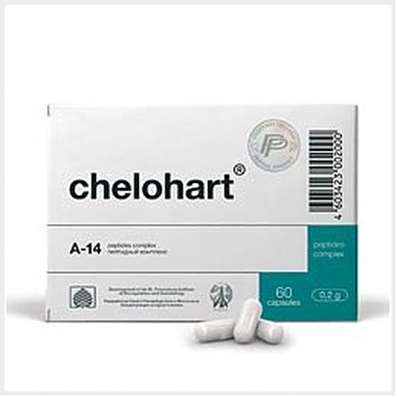Instruction for use: Desoxynatum
I want this, give me price
Dosage form: Solution for intramuscular and subcutaneous administration; Injection for injection; Solution for local and external use; Solution for external use
Active substance: Natrii deoxyribonucleas
ATX
L03AX Other immunostimulants
Pharmacological groups:
Stimulators of hematopoiesis
Regenerants and reparants
Other immunomodulators
The nosological classification (ICD-10)
A69.0 Necrotizing ulcerative stomatitis: Ulcerative stomatitis; Vishnan disease
D70-D77 Other diseases of blood and blood-forming organs: Diseases of peripheral blood
D72.8.0 * Leukopenia: Autoimmune neutropenia; Congenital neutropenia; Granulocytopenia; Idiopathic and drug-induced leukopenia; Idiopathic neutropenia; Leukopenia aplastic; Leukopenia radiation; Leukopenia with radiation therapy; Radiation leukopenia; Hereditary neutropenia; Neutropenia in patients with AIDS; Periodic neutropenia; Radiation leukopenia; Persistent neutropenia; Febrile neutropenia; Two-stage cytopenia; Radiation cytopenia; Neutropenia is cyclic
J02.9 Acute pharyngitis, unspecified: Purulent pharyngitis; Acute rhinopharyngitis; Lymphonodular pharyngitis
J31 Chronic rhinitis, nasopharyngitis and pharyngitis: Allergic rhinosinusopathy; Inflammation of the nasal mucosa; Infectious and inflammatory diseases of ENT organs; Catarrh of the nasopharyngeal region; Year-round rhinitis; Ozena; Persecution in the throat or nose; Rhinitis hyperplastic; Rhinitis chronic; Pharyngoesophagitis; Chronic bacterial rhinitis
K05.0 Acute gingivitis: Gingivitis acute; Gingivitis; Acute ulcerative-necrotic gingivitis of Vincent; Acute Ulcerative Gingivitis
K12 Stomatitis and Related Losses: Bacterial stomatitis; Inflammatory diseases of the oral cavity; Inflammatory diseases of tissues of the oral cavity; Inflammatory processes in the oral cavity; Fungal diseases of the mouth; Fungal infections of the oral cavity; Fungal infections and inflammatory diseases of the mouth; Diseases of the mouth; Infectious-inflammatory disease of the oral cavity; Exacerbation of inflammatory diseases of the pharynx and oral cavity; Stomatitis; Angular stomatitis; Chronic recurrent stomatitis; Ulcerative necrotic diseases of the oral mucosa; Ulcerative necrotic diseases of the oral mucosa; Ulcerative necrotic lesions of the oral mucosa; Ulcerative necrotic gingivostomatitis; Ulcerative stomatitis; Erosive-ulcerative lesion of the oral mucosa; Erosive-ulcerative lesions of the mucous membrane of the oral cavity; Erotic mucous membrane of the oral cavity; Recurrent ulcerative stomatitis
K13.7 Other and unspecified oral white lesion: Aspirin burn of the oral mucosa; Gum pain when wearing dentures; Inflammation of the mouth; Inflammation of the oral mucosa after radiation therapy; Inflammation of the oral mucosa after chemotherapy; Inflammation of the oral mucosa; Inflammation of the mucous membranes of the mouth; Inflammatory diseases of the oral cavity; Inflammatory process of pharynx; Disease of the oral mucosa; Injuries to the oral cavity and larynx; Injuries of the oral mucosa; Trophic diseases of the oral mucosa; Trophic diseases of the oral mucosa; Erosive-ulcerative periodontal disease; Erosive-ulcerative lesion of the oral mucosa; Erotic mucous membrane of the oral cavity; Erotic-ulcerative periodontal lesions; Erosive-ulcerative lesions of the mucous membrane of the oral cavity; Radio-epileleitis; Irritation from dentures; Irritation of the oral mucosa with dentures and braces; Oral cavity; When wearing dentures
K20 Esophagitis: Infections of the digestive tract; Acute erosion of the esophagus; Esophagitis erosive; Erosive esophagitis; Infectious Disease of the GI tract
K51.0 Ulcerative (chronic) enterocolitis: Enterocolitis necrotizing; Necrotizing enterocolitis; Necrotizing enterocolitis and enteritis
K51.2 Ulcerative (chronic) proctitis: Paraproctitis; Prostitis ulcerative; Erosive proctitis; Catarrhal proctitis
L58 Radiation dermatitis radiation: Radiation damage to the skin; Radiation skin lesions; Radiation damage to the skin and mucous membranes; Skin lesion with radiation therapy; Irritation after exposure to X-rays; Radiation damage to the skin; Radio-epileleitis; Radiation acute syndrome
N76 Other inflammatory diseases of the vagina and vulva: Vulvovaginitis atrophic; Vulvovaginitis bacterial; Vulvovaginitis estrogen-deficient; Bacterial vaginosis; Vaginitis; Vaginitis bacterial; Inflammatory diseases of the vagina and vulva; Inflammatory diseases of female genitalia; Inflammatory diseases of female genital organs; Vulvit; Vulvovaginitis; Vulvovaginitis; Gardnerella; Fungal vulvovaginitis in girls and virgins; Infection of the vagina; Infection of the genitals; Colpitis; Violation of purity of the vaginal secretion; Nonspecific cervicovaginitis; Nonspecific vulvitis; Nonspecific vulvovaginitis; Nonspecific colpitis; Recurrent nonspecific bacterial vaginosis; Senylic coverings; Mixed Colpus; Chronic vaginitis; Vulvovaginal infections; Bacterial vaginitis; Bacterial vaginosis; Bacterial vaginitis; Mixed vaginal infections
T30 Thermal and chemical burns of unspecified site: Pain syndrome with burns; Pain in burns; Pain with burns; Sluggishly healing post-burn wounds; Deep burns with a wet scab; Deep burns with abundant compartments; Deep burn; Laser burn; Burn; Burn of rectum and perineum; Burn with mild exudation; Burn disease; Burn injury; Superficial burn; Superficial burn of I and II degree; Superficial skin burns; After-burn trophic ulcer and wound; Post-burn complication; Loss of fluid in burns; Sepsis burn; Thermal burns; Thermal skin lesions; Thermal burn; Trophic after-burn ulcers; Chemical burn; Surgical burn
T66 Unspecified radiation effects: Radiation disease; Diarrhea radiation; Gastrointestinal syndrome with irradiation; Radiation sickness; Radiation disorders of mucous membranes; Irradiation chronic; Osteoradionecrosis; Acute radiation sickness; Acute and chronic radiation injuries; Acute radiation syndrome with radiation therapy; Subacute and chronic radiation sickness; Radiation Neuropathy; Radiation edema; Radiation damage to the nervous system; Radiation immunodeficiency; Radiation syndrome; Radio-epileleitis; Radiation acute syndrome; State after irradiation; Cytopenia due to previous radiation or chemotherapy; Cytopenia radiation; Cytopenia due to radiation therapy; Cytopenia due to chemotherapy
T86 Dying and rejection of transplanted organs and tissues: Transplant disease vs. host; The rejection crisis in organ and tissue transplantation; The crisis of immunological incompatibility in organ transplantation; Incompatibility of tissues; Graft rejection; Graft rejection; Rejection reactions during organ transplantation; Rejection reactions during tissue transplantation; Graft versus host response; Rejection of transplant rejection; Graft-versus-host syndrome; Fabric incompatibility
Z51.0 Radiotherapy course: Supplement to external radiation therapy; Local X-Ray Irradiation; Radiation therapy; Brain edema associated with radiation therapy; Lesion in radiation therapy; Radiotherapy
Z51.1 Chemotherapy for neoplasm: Cystitis hemorrhagic, caused by cytostatics; Urotoxicity of cytostatics
Z54 recovery period: The recovery period; The recovery period after illness; Recovery; The recovery from the flu and colds; Recovery after illness; The lack of mineral salts in the period of convalescence; The period of recovery after illness; The period of recovery after illness and surgery; The period of recovery after a serious illness; The period of convalescence after illness; rehabilitation period; rekovalestsentsii period after infectious diseases; decubation; The period of convalescence after surgery and infectious diseases; The period of convalescence after prolonged infections; The period of convalescence after serious diseases; The period of convalescence after severe infections; Rehabilitation period; convalescent state; Convalescence after illness; Convalescence after infectious diseases; Convalescence after debilitating diseases; Convalescence after infectious diseases; Convalescence at an elevated blood loss; Status of convalescence after illness
Z58.4 Effects of radiation contamination: Radiation damage; Acute radiation damage; Radiation syndrome
Z94.5 Presence of transplanted skin: Skin grafts; Skin Replacement; Poorly healing skin graft; Poorly engrafted skin graft; Skin Transplantation; Fixation of skin grafts
Composition and release form
1 ml of external solution contain 0.0025 g of sodium deoxyribonucleate from milk of sturgeon; In glass bottles of 50 ml, in a carton 1 bottle.
1 ml solution for injection - 0.005 g; In ampoules of 5 ml (complete with a knife ampoule), in a cardboard box 10 pcs.
Pharmachologic effect
Mode of action - Anti-inflammatory, immunostimulating, wound healing, regenerating, leukopoietic.
Stimulates cell proliferation, especially leukopoiesis. Reduces the severity of local inflammatory reactions, activates the growth of granulations and epithelium.
Clinical Pharmacology
It facilitates the course of radiation sickness (a single intravenous injection within the first 24 hours after irradiation), has leuko- and immunostimulating effects in cancer patients.
Indication of the drug Desoxynatum
Leukopenia, incl. Caused by cytostatics; radiation sickness. Ulcerative necrotic lesions of the skin and mucous membranes (stomatitis, gingivitis, pharyngo esophagitis, enterocolitis, vulvovaginitis, paraproctitis); Radiation ulcers, thermal burns; Stimulation of autograft engraftment.
Side effects
Short-term hyperthermia, tenderness at the injection site.
Dosing and Administration
IM or SC, adults and children - 15 ml of 0.5% solution, if necessary - again. Locally, in the form of dressings impregnated with 0.25% solution, 3-4 times a day: possibly rectal (in the form of enemas) and intravaginal (on the tampon) introduction. When the mucous membranes of the oral cavity are rinsed, followed by swallowing 5-15 ml 4 times a day.
Storage conditions of the drug Desoxynatum
At a temperature of 5-10 ° C.
Keep out of the reach of children.
Shelf life of the drug Desoxynatum
3 years.
Do not use after the expiry date printed on the package.

 Cart
Cart





